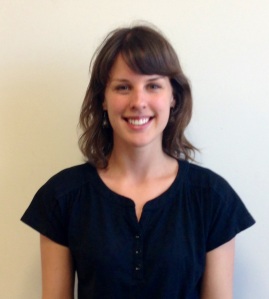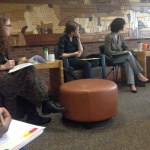 During my stay in Boston working with the Trauma Center at Justice Resource Institute, I had the privilege of attending The International Trauma Conference with well-known trauma scholars Bessel van der Kolk, Ian McFarlane, and Alan Sroufe. The four-day conference brought me to a further understanding of how trauma affects the human person, of new forms of healing, and the importance of self-care for the therapist and advocate.
During my stay in Boston working with the Trauma Center at Justice Resource Institute, I had the privilege of attending The International Trauma Conference with well-known trauma scholars Bessel van der Kolk, Ian McFarlane, and Alan Sroufe. The four-day conference brought me to a further understanding of how trauma affects the human person, of new forms of healing, and the importance of self-care for the therapist and advocate.
Looking at the brain and behavior, it is frightening to see the effects of trauma. A trauma survivor is stuck in the fight/flight/freeze state of mind, the worry of survival always at hand. As Bessel van der Kolk defines it, “The goal of treatment of PTSD is to help people live in the present, without feeling or behaving according to irrelevant demands of the past.” What I took from the conference is that the ability to heal from trauma seems to be strongly related to the time at which the trauma took place in life. Babies, children, and adolescents have it the hardest in that trauma dramatically impacts their brain development. Their behavior is melded to whatever helped them survive (physically and emotionally) during the trauma. In the conference, we looked specifically at mothers who had complex trauma, witnessing how their behavior actually passes the trauma down to their children. It was haunting and deeply depressing. The answer seemed to lie somewhere between having stable, loving relationships with others and in practices of mindfulness.
While I am here to learn about and expand on yoga as a treatment for trauma, yoga really has been a way to care for myself as I go deeper into the issues surrounding trauma. In this way, my mind is spinning with ways in which to bring yoga into the world of advocacy. Self-care is usually taught as getting plenty of rest, eating nutritious meals, connecting with others in the profession to digest this work… and while all of that is true and beneficial, ultimately, it takes a lot of time in the day to do those things. My belief is that just 30 minutes of yoga can make a dramatic difference, and when your job is protecting someone else’s life, 30 minutes might be all you get. In this way, the ancient tradition has some very new meaning for people in the West.
In conclusion, I am eager to get back to the Twin Cities and put my knowledge and experience to use. Since my arrival one month ago, this fellowship has been highly educational not just academically, but also in my self-study as an advocate. I will always remember this experience.
The views expressed in this article represent those of the author and not necessarily those of the Human Rights Center. As a forum for dialogue and education, and an acknowledgment of the contentious nature of human rights issues, some views expressed on this blog may not necessarily be those of the Human Rights Center as an institution.

